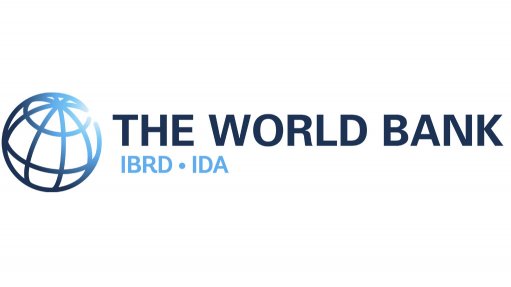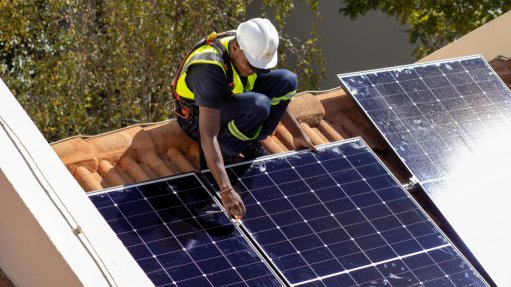True economic cost must be considered when Zuma pays back the money
It is 27.1 °C on Sunday, May 8, which happens to be the hottest day in May in four years, as I stare down the Greenwich Park embankment, just below the Royal Observatory – one of the eight Royal Parks in London – while under the cover of a large oak tree. It is not the infamous Queen Elizabeth’s Oak, which, since 1991, has been residing horizontally. When it was still vertical, it offered Queen Elizabeth, when she was still a child, the opportunity to have refreshments in its shade or in its internal cavity, which measured 6 ft in diameter.
Confused by this introduction? Well, if you are not confused, you do not have all the facts. Business writer Tom Peters argues that, “if you’re not confused, you’re not paying attention”, and an anonymous writer once said: “If you’re not confused, then you really do not understand what’s going on.”
Have you been following the ‘Pay back the money’ debacle? There can only be one (apologies to the Highlander) – relating to President Jacob Zuma’s Nkandla homestead, that is. ‘Pay back the money’ is not much of a debate, really. If you have been following the debacle, you must surely be a soap opera fan or have a high level of tolerance or endurance, or both, for matters repetitive and inconclusive. If you have a keen understanding of the matter, you might well contend that it is not as confusing as it is confounding. Even so, just remember that being ‘confounded’ is considered to cause surprise or confusion in others. It is all very confusing, isn’t it?
In trying to unravel this whole tangled web that was woven – and continues to be woven (apologies to Shakespeare) – one should be mindful of the immortal words of Albert Einstein: “Everything should be made as simple as possible, but not simpler.” In the context of ‘Pay back the money’, the concept of ‘money’ differs greatly, depending on its application and use in, for instance, the disciples of accountancy and economics.
‘Pay back the money’ requires more than a mere calculation – an elementary calculation at that – of the actual money spent (actual momentary amount) that needs to be repaid. This is the manner in which accountants would deal with ‘Pay back the money’. For us economists, however, it is a bit more complicated, but, in my view, more equitable, as it is concerned with the ‘true economic cost’. Economics account for not only the actual amount, but also the opportunity cost, which is the cost of pursuing any other alternative or alternatives. This critical component of calculation is, incomprehensibly, ignored by all concerned. Their preoccupation is solely to ensure that the money is paid back. What they tend to forget is that opportunity cost is also concerned with the cost of capital. In other words, the ‘cost of capital’ refers to the opportunity cost of applying a monetary resource to a selected need in favour of another need. Considering that the South African economy is by some accounts technically in recession, the application by central government of a scare resource such as money should be undertaken with a great measure of circumspection. If anything, such an economic decision should be morally sound and beyond reproach. If anything, the expenditure on the homestead has been anything but that.
In calculating the ‘true economic cost’, one would need to account for the actual cost incurred, both in respect of the cost of the materials used and those people directly involved in the construction. Then there are also the indirect costs – the officials. There were various grades of officials involved, some of whom have been reprimanded for their actions, while others have had to defend their actions and those of others. All this came at a cost to the taxpayer. Then there were various forms of judicial intervention, costing government resources that could have been used more productively elsewhere. There seems to be a total oblivion to these costs. It is as if some might believe, or might want others to believe, that these structures (officials and departments) are there for the purpose of dealing with this homestead – in particular, the defence thereof.
But even taking all these costs (direct and indirect) into account will not provide us with the ‘true economic cost’, for there is yet another consideration, one which has great application in excise duties and environmental levies, but which is largely overlooked in the matter pertain- ing to the homestead – externalities. Externali- ties can either be positive or negative. An externality is a cost – a social cost – that is imposed on us by a third party. It is an imposed cost that, if you had a choice, you would not willingly accept. The externality related to the ‘Pay back the money’ debacle is, of course, a negative externality that we suffered as unwilling participants. Here, the monetary amount is more difficult to quantify than the opportunity cost, for there is real subjectivity in its measure. One has to consider the economic impact that the matter of the homestead has had and continues to have on domestic and international perceptions of South Africa caused by persisting national and international media coverage of the Nkandla debacle.
Then there is another direct cost, a real cost – the President’s counsel referred to this debacle as a “protracted issue which has traumatised the nation”. According to a newspaper report published on May 5, the Presidency had spent R45-million in legal fees in the past six years defending court action in the Constitutional Court‚ the Supreme Court of Appeal and various High Courts across South Africa (the whole amount is not solely attributable to the President’s Nkandla homestead; he has faced various other legal challenges). The report also stated that it was not clear from Budget documents as to who had paid the legal fees – the Presidency or the Justice Department – and that the cost of support services for the President and the Deputy President increased from R34-million in 2005 to R118-million in 2015/16.
The Nkandla debacle dates back to late 2011. Zuma’s personal architect is facing a R155-million civil lawsuit brought by the Special Investigating Unit, while 11 public servants represented by the Public Servants Association are awaiting the conclusion of disciplinary proceedings, which might be subject to lengthy court battles.
On April 26, the Constitutional Court tasked the National Treasury to determine the extent of nonsecurity spending at Nkandla and how much the President should repay. Whether the cost would be at current prices would be one thing, but whether it would be inclusive of opportunity cost and externalities is another. Numerous reports on the Nkandla debacle – including the Public Protector’s and the Police Minister’s – have been released, with none taking the aforementioned into account. The Constitutional Court has now given the National Treasury 60 days to determine the amount to be repaid by the President, and the President has been ordered by the court to repay the determined amount within 45 days thereafter.
According to a BBC article based on the Public Protector’s report, expenditure on past South African Presidents’ private homesteads, in 2013 money terms, was as follows: PW Botha, $16 100; FW de Klerk, $22 000; Nelson Mandela, $2.9-million (on two residences); Thabo Mbeki, $1.1-million; and Zuma, $23-million (on his rural Nkandla residence).
In these trying times, one is reminded that, no matter how much things change, they tend to remain the same. In am reminded of the following: “It’s not about electing the right people. It’s about narrowing their responsibilities.” (John Stossel); “Democracy is not a form of government. It is a tool of government. Case in point, Stalinist USSR was a ‘democracy’” (AE Samaan); and “When they call the roll in the Senate, the senators do not know whether to answer ‘Present’ or ‘Not guilty.’” (Theodore Roosevelt). But the definitive might well be: “When the President does it, that means that it is not illegal.” (Richard M Nixon, the only US President ever to resign from office).
Parting thought – when you type ‘Pay back the money’ into Google’s search window, it returns as its first search result: “Schuks! Pay Back the Money! 2015 film trailer – YouTube”. Does this not exemplify the whole debacle? A synomym for ‘debacle’ is an ignominious failure, while ‘ignominious’ is defined as ‘deserving or causing public disgrace or shame’.
Comments
Press Office
Announcements
What's On
Subscribe to improve your user experience...
Option 1 (equivalent of R125 a month):
Receive a weekly copy of Creamer Media's Engineering News & Mining Weekly magazine
(print copy for those in South Africa and e-magazine for those outside of South Africa)
Receive daily email newsletters
Access to full search results
Access archive of magazine back copies
Access to Projects in Progress
Access to ONE Research Report of your choice in PDF format
Option 2 (equivalent of R375 a month):
All benefits from Option 1
PLUS
Access to Creamer Media's Research Channel Africa for ALL Research Reports, in PDF format, on various industrial and mining sectors
including Electricity; Water; Energy Transition; Hydrogen; Roads, Rail and Ports; Coal; Gold; Platinum; Battery Metals; etc.
Already a subscriber?
Forgotten your password?
Receive weekly copy of Creamer Media's Engineering News & Mining Weekly magazine (print copy for those in South Africa and e-magazine for those outside of South Africa)
➕
Recieve daily email newsletters
➕
Access to full search results
➕
Access archive of magazine back copies
➕
Access to Projects in Progress
➕
Access to ONE Research Report of your choice in PDF format
RESEARCH CHANNEL AFRICA
R4500 (equivalent of R375 a month)
SUBSCRIBEAll benefits from Option 1
➕
Access to Creamer Media's Research Channel Africa for ALL Research Reports on various industrial and mining sectors, in PDF format, including on:
Electricity
➕
Water
➕
Energy Transition
➕
Hydrogen
➕
Roads, Rail and Ports
➕
Coal
➕
Gold
➕
Platinum
➕
Battery Metals
➕
etc.
Receive all benefits from Option 1 or Option 2 delivered to numerous people at your company
➕
Multiple User names and Passwords for simultaneous log-ins
➕
Intranet integration access to all in your organisation


















